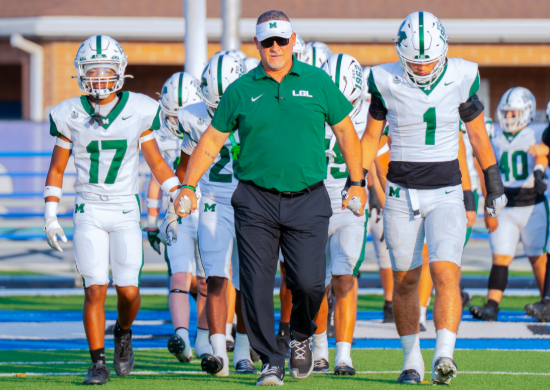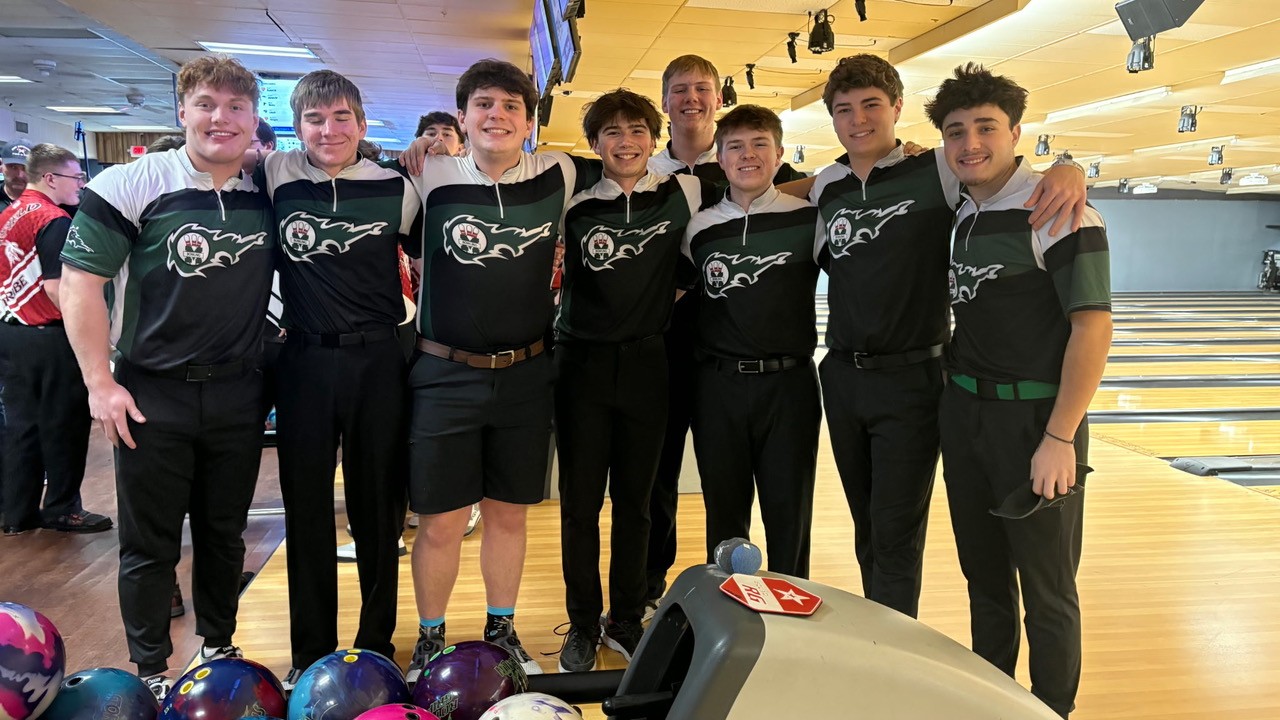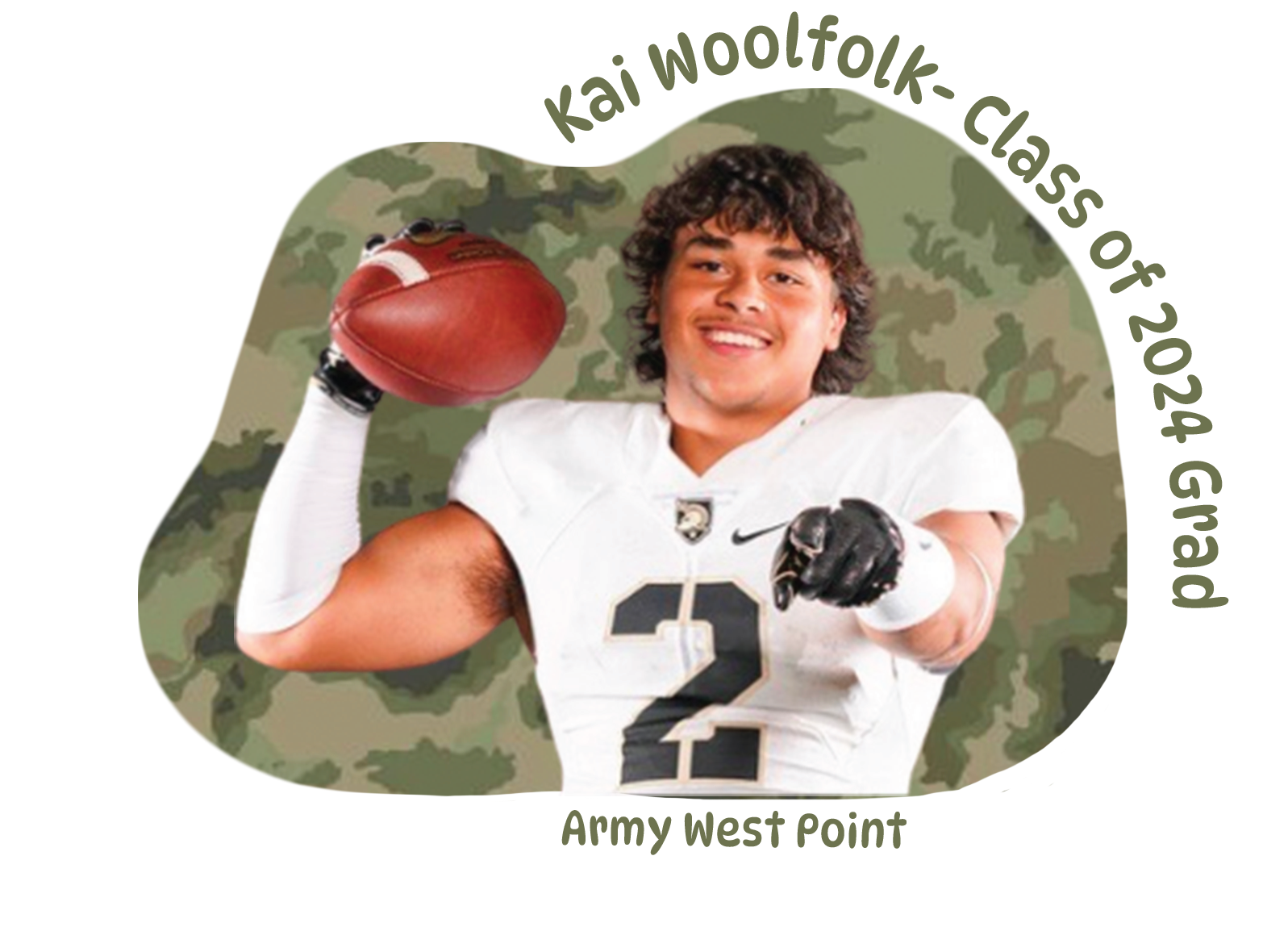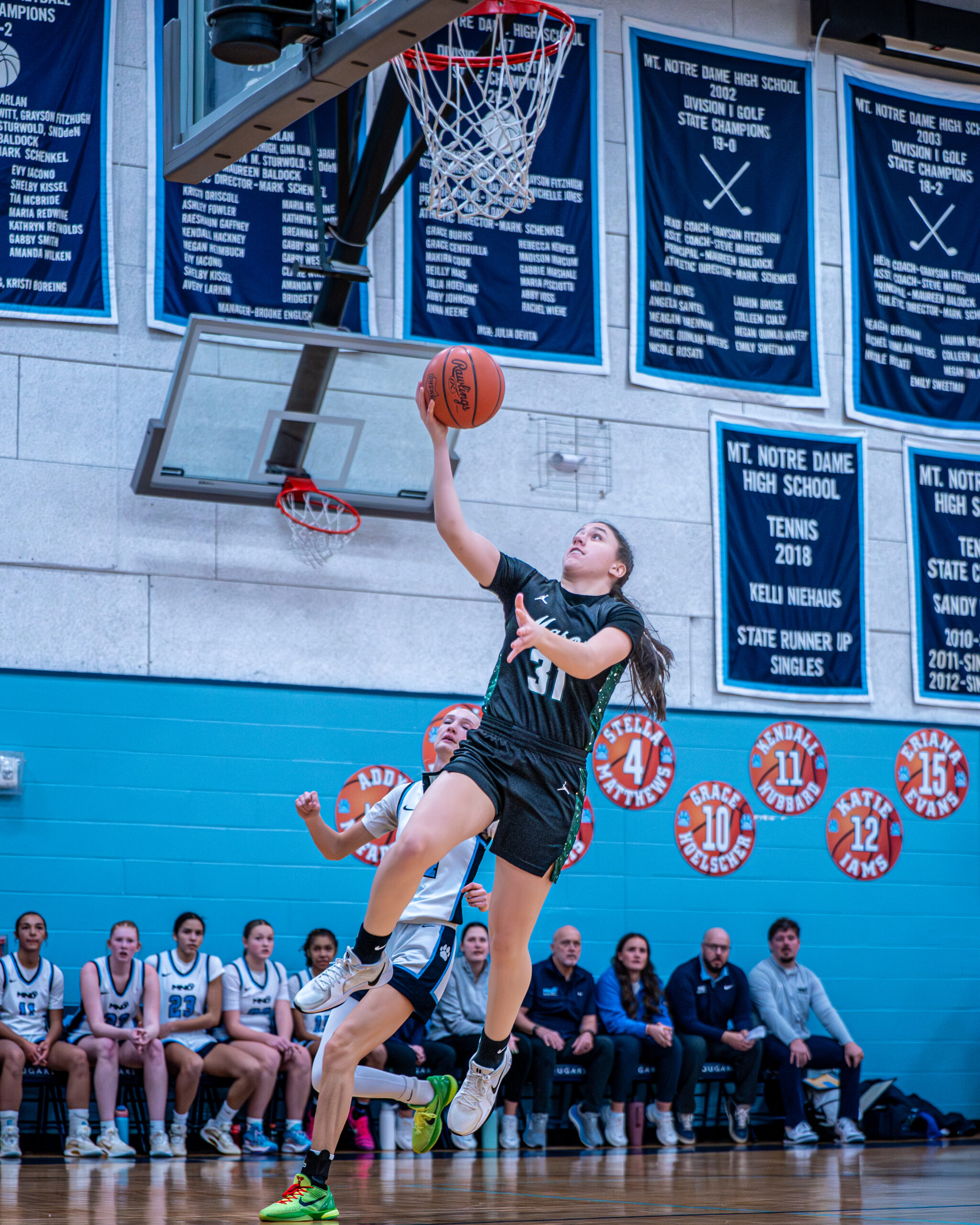Maria Ataya | The Chronicle
Determined. Disciplined. Resilient. These words portray the culture that has defined the Mason High School (MHS) football program and each player who has come and gone. But there is one thing that has stayed the same. Head coach Brian Castner, who has been behind the plays, development and strategies of Mason football for the last 16 years, has built more than a team; he has built a family. His leadership extends beyond the field, focusing on instilling long-term values in each player who wears the Mason jersey.
On October 17th, Mason’s dominant 38-12 victory against Colerain High School marked Castner’s 100th career win, a testament to his dedication and longevity within the program. While he does not center his focus much on his personal numbers, as he approached triple digits, the significance of the achievement began to sink in.

Head coach Brian Castner (middle) walks on to the field with senior captains before their 28-21 victory against Hamilton on Sept. 19.
“It was week three or four [when it] really started registering with me,” Castner said. “I [had] started to reflect a little bit over the years, [and I] got somewhat emotional in the middle of the season just by myself. But it was all about the players, and it was all about not just the starters over the years, but the kids that were a part of our culture.”
These emotions deepened when a video was put together that highlighted all the alumni, players and coaches who have been a part of his career as a way to congratulate him on his journey and his accomplishments. Castner said that watching back that video created a full-circle moment for him, a reminder of the people he trusted and the relationships that have influenced him.
“My wife, Andrea, has been the one who has hugged me and [supported me] after every game,” Castner said. “That is one thing that I will always cherish.”
Boundless support like his wife’s reminds Castner why he started coaching in the first place, because for him, success has never been about the numbers on the scoreboard. Although reaching 100 wins is an impressive feat, it was the last thing on Castner’s mind.
“Wins and losses do not define me, nor this program,” Castner said, “We are more defined by the everyday operations of making a difference in young men’s lives and young adults’ lives.”
Castner has impacted many players on and off the field; however, he has been impacted by the people around him just as much. His lessons go beyond Dwire Field – they are values that Castner first experienced as a player himself, and carried on to his own players. He credits his high school football coach for teaching him the importance of supporting players beyond the field.
“He was there for me, not just on the field, but off the field,” Castner said. “And he inspired me. He impacted me every day. It wasn’t always roses. He got after me in a way that I needed to be pushed, and I respected that.”
Those lessons stayed with him long after his days of playing football, shaping the person and coach he is today and allowing him to connect with his players in similar ways. He also credits the staff and the teachers he has worked with over the years, who have also impacted him, as well as other coaches with whom he has built relationships that were deeper than just football.
Castner’s loyalty and longevity extend to Mason schools themselves. When it comes to coaches, many frequently change schools, whether it is in search of better opportunities or to start fresh with a more “talented” roster. Regardless of Mason’s record, Castner has stayed true to the program and found his purpose right where he is. Through the ups and downs, he never once thought about leaving his team.
“I think a lot of people lose sight of what you do as you find that profession,” Castner said. “And this place is as special as it gets.”
His commitment to Mason mirrors his commitment to people as well – a theme that represents his entire coaching journey. Looking back at his career, there were many ups and downs, but what he is most proud of is the connections with the players who were committed to bringing the best version of themselves, and the athletes who challenged him.
“I lead with my heart,” Castner said. “I do not think everybody always sees that. Everybody has their own opinion on Brian Castner or the Mason football program. I say this to senior parents all the time. Your son might be second string on the field, but he is first string in life.”
People don’t know Castner for him, so they are often quick to judge, but Castner knows himself and knows where he stands, no matter the people’s opinions. He talks about how hard it is for parents to understand that there is more to the team than just playing on the field, because they get blinded by the fact that they want their kid to be the best, playing all Friday night. Castner wants parents to understand that the players out on that field are a part of something bigger than themselves.
“When an athlete is selfish and he’s only thinking about himself in a team sport, we’re not talking about wrestling. We’re not talking about an individual sport, tennis, or what you’re playing by yourself.” “It’s the selfishness that’s so hard, and a lot of things can just fall under that category.”
Because of this, it has always been crucial for Castner to not only train the players but also teach them morals and values. He emphasizes the importance of what he calls the “Big 4”: faith, family, academics, and football. He believes everyone should have faith in something, no matter what it is. Next comes family, the people who brought you into this world and stand by you through everything. Lastly, there are academics and football, leading him to his three key questions.
“[There are] three questions that I ask [the team] every day, and every Friday,” Castner said. “Are you committed? Are you going to give great effort? And can I trust in you? And a lot of times when we don’t have great seasons, it’s because we can’t trust in each other, and we don’t have the two controllables, [which are] attitude and effort.”
No matter the successes and the challenges of his career, never once has his passion for the team and his program changed; orienting relationships, memories, and purpose. His legacy is written through the lives he has touched and the lessons that have been learned through his players. 16 years later, his values have never changed and they continue to define Mason’s program. Castner will continue to coach with heart, passion, and a drive for victory.
“We are going to keep swinging the ax, trying to sharpen it and do what we need to do to be the best environment around,” Castner said.






